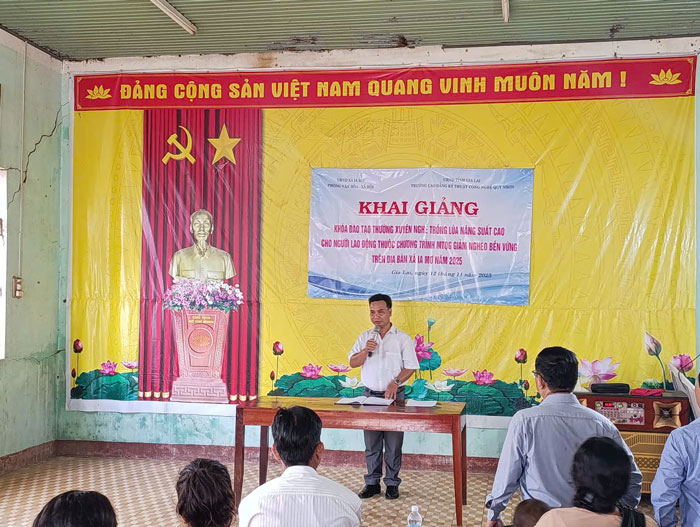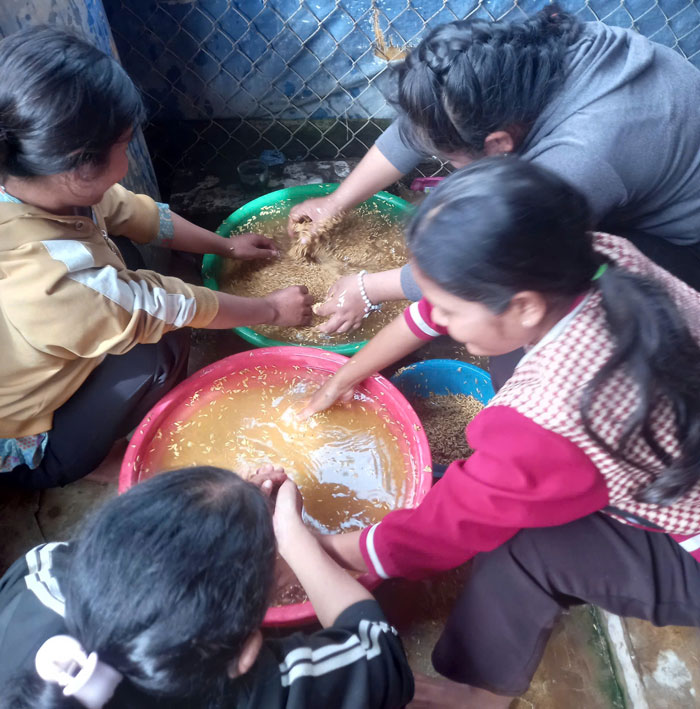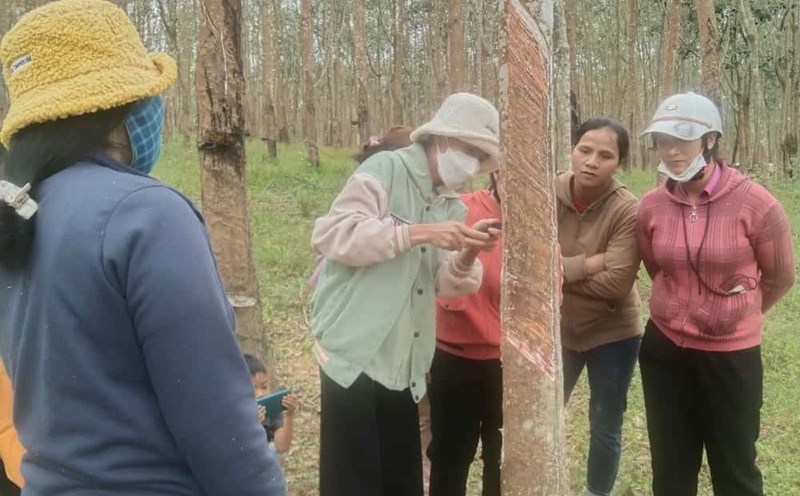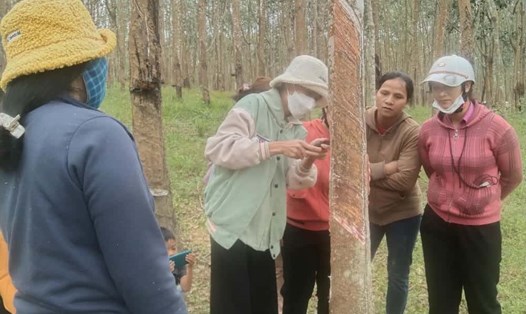Vocational training to open the way for the future for the people
Mr. Tran Quyet Thang - Chairman of the People's Committee of Ia Mo commune, Gia Lai province - said that the commune is located in the border area, and people's lives still face many difficulties due to land shortage and natural disasters affecting agricultural production.
However, the goal by 2030 is to achieve an average income of 40 million VND/person/year; the total planted area will reach 3,500 hectares; the rate of households participating in health insurance will reach 95%; the rate of clean water use will reach over 70%...

Implementing the National Target Program, commune authorities will promote propaganda and mobilization to reduce early marriage and consanguineous marriage; support gender equality activities, especially focusing on vocational training and job creation for people.
Ms. Duong Thi Mui - lecturer at Quy Nhon Industrial College of Industry, Gia Lai province - said that Ia Mo commune mainly produces agriculture and grows rice, so the school teaches vocational skills, guides people on effective farming methods, and selects high-yielding rice varieties.
After Ia Mo irrigation with a total capital of 3,000 billion VND was deployed with an irrigation canal system, hundreds of hectares of rice of the people were lush and achieved high productivity, capable of growing two rice crops/year. According to Ms. Mui, people have long been growing rice but have not had experience in care and techniques; in vocational classes, lecturers teach part of the theory, the rest are guides in direct practice in the fields.
In the actual class, lecturers instruct people on the time of fertilization and the appropriate water level for the fields. At the same time, people are instructed on how to preserve quality rice varieties and care processes to achieve high productivity, Ms. Mui shared.
Students enthusiastically attended the class, struggling to ask questions, exploring through books, documents and lecturers. When the season is right, people have rice to store in warehouses, helping them stabilize their lives, overcome natural disasters, crop failure, and hunger in the crop season.
Ms. Ro Lan Diu (born in 1993, residing in Klah village, Ia Mo commune) is a near-poor household with an unstable income, dependent on the fields to raise young children. "I and many other households took the time to attend vocational classes organized by the commune. In class, I learned more about growing rice and fertilizing crops. When I don't know, I can call the teacher to ask. For many years, villagers have been growing rice according to customs, old varieties are resistant to drought. Having studied a trade, having access to information, I feel I have many opportunities to rise up, said Ms. Diu.
Helping workers gain more skills and qualifications
Mr. Kpa Mim (born in 1996, residing in Klach village) shared: "People hope that every year the commune will organize diverse vocational training, suitable for their needs such as animal husbandry, disease prevention for livestock; teaching rice cultivation; caring for forest trees to serve forest protection contracts; repairing agricultural machinery...".
"Long-lasting heavy rain", agricultural knowledge accumulated by people is gradually being applied, helping them create jobs or participate in working at pig farms, high-tech agriculture attracting investment in Ia Mo, Ia Lau, Ia Panch areas...

Along with social security work, the Ia Mo commune government aims to bring rural workers to access scientific and technical advances in production and develop the family economy. The commune expects a breakthrough in the field of high-tech agriculture when the water from Ia Mo irrigation lake has been branched off to the fields, forming large-scale model fields, large-scale livestock farming associated with short-term crops of high value.
Recently, a number of enterprises such as Chu Se Rubber One Member Co., Ltd., Chu Prong, Truong Hai Agricultural Group ( ThacoAgri)... have strategized to promote investment in high-tech agriculture in border areas such as cattle farming, renewable energy, grass growing, and combined forestry.
The perseverance and efforts in vocational training for ethnic minorities, helping them with skills and techniques, will open up many opportunities when workers apply for jobs at factories and enterprises in the area. Not only vocational training, people are also trained in industrial style, attached to businesses to have a suitable salary, stabilize their lives and escape poverty sustainably.











